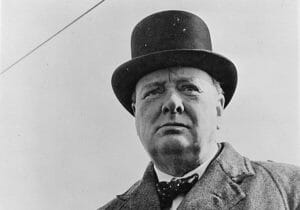‘Tinker Tailor Soldier Spy’ … Clunker
Under Tomas Alfredson’s leaden direction, the film, which is set in the 1970s when the Cold War was at its height, consists mainly of guys enigmatically sipping whiskey, smoking cigarettes and exchanging meaningful stares. There’s a mole in the soup. Or, more properly, “The Circus,” as John le Carré has always been pleased to call the British secret service.
There’s a mole in the soup. Or, more properly, “The Circus,” as John le Carré has always been pleased to call the British secret service. Evidence for this is an operation that goes terribly wrong in Hungary. George Smiley (Gary Oldman), a retired spy, is recruited by “Control” (John Hurt) to return to active duty and ferret him out, which, after nearly two and a half hours, he succeeds in doing.
This, in substance, is what “Tinker Tailor Soldier Spy” is about. Oldman’s role is sort of a reprise of Alec Guinness’ Smiley in the 1979 miniseries, but it is not, I think, an improvement on it. Under Tomas Alfredson’s leaden direction, the film, which is set in the 1970s when the Cold War was at its height, consists mainly of guys enigmatically sipping whiskey, smoking cigarettes and exchanging meaningful stares. Aside from that contretemps in Hungary, the film has no action sequences to speak of. Smiley is torching for his wife, who is a bit of a layabout, but he does so in a fashion that’s more wistful than energetic. Le Carré’s conceit, here as elsewhere in his work, is that espionage is a gray and largely bureaucratic world where “each man fixed his eyes before his feet” as they flowed mindlessly up “King William Street,” to quote T.S. Eliot.
And so forth. And so on. Back in the day, this sort of thing worked a treat. People were — justifiably — tired of more muscular spy stories, And le Carré, it was known, had done some time in the secret world. But what was a novelty some 35 years ago has become standard operating procedure in what we might term the non-thrilling thriller world. Nowadays, or so it seems to me, a few karate chops would not go amiss at the upper levels of fictional spydom. What has happened instead is that le Carré’s work, in particular, has grown infinitely longer and duller than the lean quickness of “The Spy Who Came in From the Cold,” has given way to paper-shuffling and, in the movies, actors talking without moving their lips appreciably.
I am at a loss, therefore, to explain why “Tinker Tailor … ” has been greeted as sort of a second coming in its early reviews. Maybe that’s it: It is sort of a second coming, a return to the dullness and dutifulness that seemed such a novelty in days of yore. That’s all right, I suppose. I’ll concede that we haven’t lately seen many movies of this type. But I also think that the spy story has grown grand beyond its station. Writers like le Carré aspire to some sort of literary status. They want to chop off the demeaning “mystery” or “spy” limitation from their brief bios, and be taken seriously as just plain “novelists.” And there are, from time to time, moviemakers like Alfredson who are pleased to indulge their ambition.
To that end, they round up a raft of pretty good English character actors — most of whom are not exactly household names — “Oh, look, there’s whatshisname” — and set them into “thoughtful” (i.e. chin-stroking) activity. This, of course, leads impressionable reviewers — especially desperate at this time of the year, when one after the other of the promising movies crashes and burns — to review the film’s ambitions rather than its accomplishments. It is also possible that one could, out of carelessness or the press of other business (Christmas shopping for instance, or Christmas drinking), slip and drop the secret of who the spy of the film’s title actually is. I am pleased to say that in this case that temptation did not arise for me. Solemnity is so rarely an adequate substitute for wit and pace in movies that are, let’s face it, genre pieces at heart.
By the time “Tinker Tailor Soldier Spy” ground to an end, I was so disaffected from it — eyelids drooping and all that — that I couldn’t tell you who the rotten apple was. And didn’t give, shall we say, a tinker’s damn about that failure. Andy Warhol once admitted that he rather liked long boring things. So do I occasionally. But this movie proves a sterling test case for that premise.
Your support matters…Independent journalism is under threat and overshadowed by heavily funded mainstream media.
You can help level the playing field. Become a member.
Your tax-deductible contribution keeps us digging beneath the headlines to give you thought-provoking, investigative reporting and analysis that unearths what's really happening- without compromise.
Give today to support our courageous, independent journalists.







You need to be a supporter to comment.
There are currently no responses to this article.
Be the first to respond.